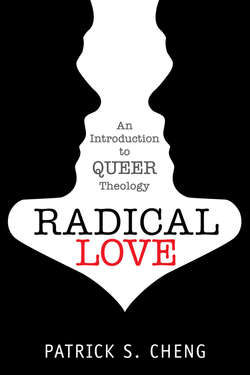Читать книгу Radical Love - Patrick S. Cheng - Страница 13
На сайте Литреса книга снята с продажи.
“Queer” as Transgressive Action
ОглавлениеIn addition to the umbrella sense of the word “queer,” there is a second meaning of “queer” that is an intentional reclaiming of a word that previously had only negative connotations. In recent years, the word “queer” has been used by many LGBT people as positive label that proudly embraces all that is transgressive or opposed to societal norms, particularly with respect to sexuality and gender identity. This use parallels the reclaiming of the word “black” by African Americans during the 1960s as a positive term of pride. Prior to that time, the preferred term was “colored” or “negro,” since “black” had a negative connotation in a racial context.
The use of the word “queer” as a positive term of pride for LGBT people can be traced as far back as the late 1980s. The Oxford English Dictionary Online cites a 1989 article that describes the LGBT community as a “queer nation” that is “assertively coed, multi-racial and anti-consumerist.”8 In 1990, the radical organization Queer Nation was founded with the goal of fighting anti-LGBT violence and prejudice through activism and confrontational tactics such as outing closeted politicians and celebrities. Queer Nation has used a number of slogans including “We’re here, we’re queer, get used to it!” and “Out of the closets and into the streets!”
Along these lines, Robert Shore-Goss, an openly gay theologian and minister with the Metropolitan Community Churches, has described queer theology as a fundamentally transgressive enterprise in his book Queering Christ: Beyond Jesus Acted Up. Indeed, Shore-Goss has argued that transgression should be seen as a central metaphor for queer theologies. For Shore-Goss, the term “queer” is used to describe an action that “turns upside down, inside out” that which is seen as normative, including “heteronormative theologies.” In that sense, the act of queering traditional theological discourse has a “prophetic edge.”9
Thus, the second meaning of “queer” is a self-conscious embrace of all that is transgressive of societal norms, particularly in the context of sexuality and gender identity. In fact, this term is best understood as a verb or an action. That is, to “queer” something is to engage with a methodology that challenges and disrupts the status quo. Like the function of the court jester or the subversive traditions of Mardi Gras, to “queer” something is to turn convention and authority on its head. It is about seeing things in a different light and reclaiming voices and sources that previously had been ignored, silenced, or discarded. It is proudly asserting a worldview for which LGBT people have been historically taunted, condemned, beaten, tortured, and killed.
